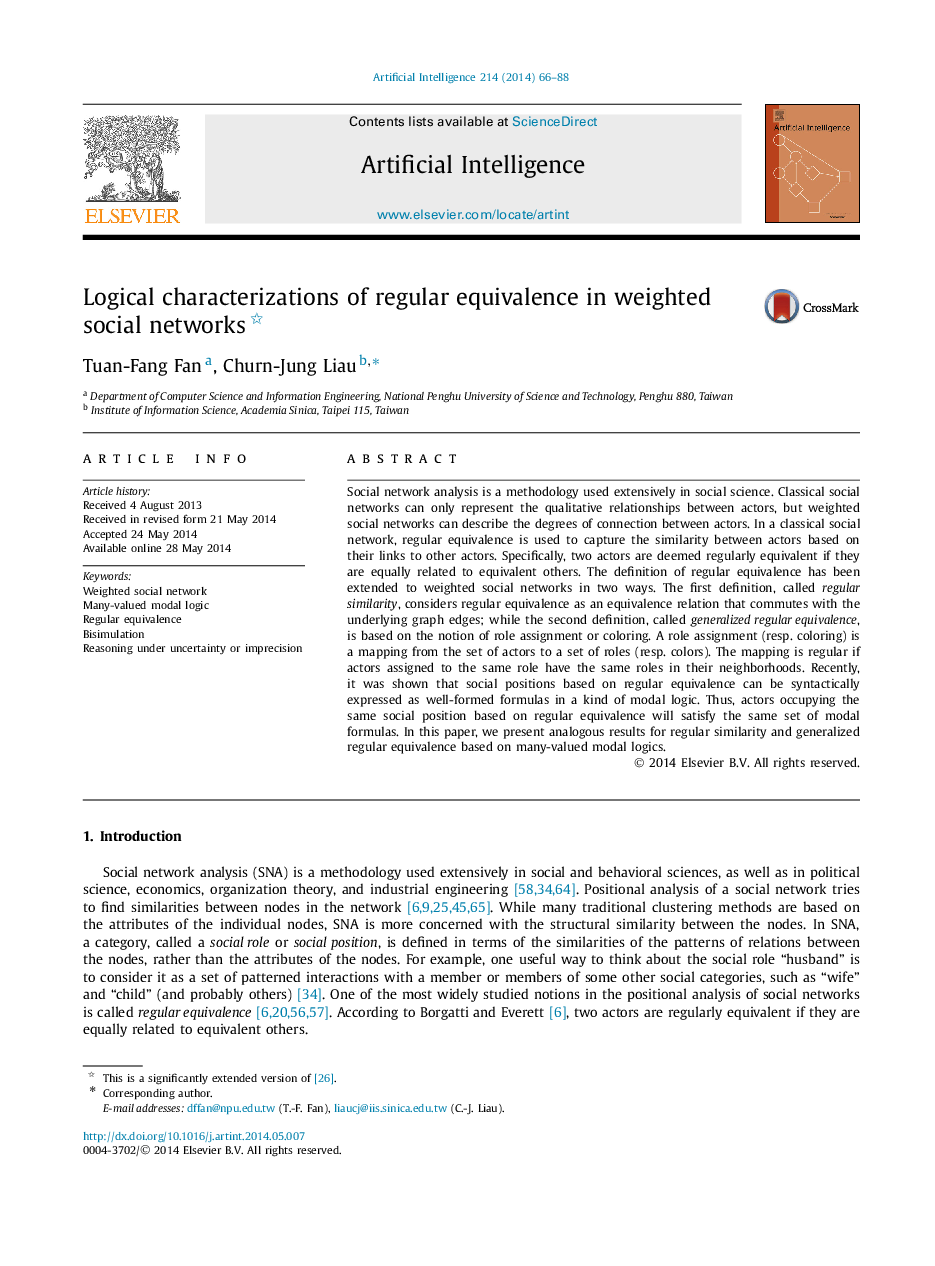| Article ID | Journal | Published Year | Pages | File Type |
|---|---|---|---|---|
| 376889 | Artificial Intelligence | 2014 | 23 Pages |
Social network analysis is a methodology used extensively in social science. Classical social networks can only represent the qualitative relationships between actors, but weighted social networks can describe the degrees of connection between actors. In a classical social network, regular equivalence is used to capture the similarity between actors based on their links to other actors. Specifically, two actors are deemed regularly equivalent if they are equally related to equivalent others. The definition of regular equivalence has been extended to weighted social networks in two ways. The first definition, called regular similarity, considers regular equivalence as an equivalence relation that commutes with the underlying graph edges; while the second definition, called generalized regular equivalence, is based on the notion of role assignment or coloring. A role assignment (resp. coloring) is a mapping from the set of actors to a set of roles (resp. colors). The mapping is regular if actors assigned to the same role have the same roles in their neighborhoods. Recently, it was shown that social positions based on regular equivalence can be syntactically expressed as well-formed formulas in a kind of modal logic. Thus, actors occupying the same social position based on regular equivalence will satisfy the same set of modal formulas. In this paper, we present analogous results for regular similarity and generalized regular equivalence based on many-valued modal logics.
